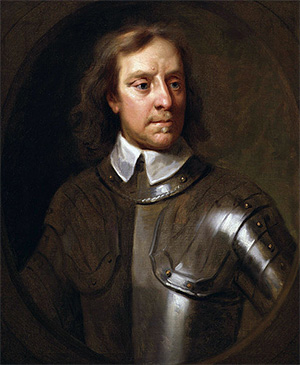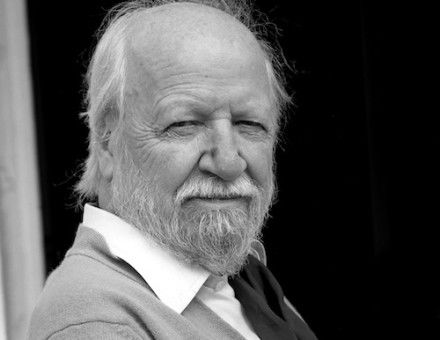Men of the Same Resolution
Philip Baker reassesses an article from 1967 on Cromwell and the Levellers, which challenged the orthodoxies of the times.
 Maurice Ashley’s reassessment of the relationship between Oliver Cromwell and the Levellers – the short-lived, London-based petitioner movement of the Civil Wars – represented a fundamental challenge to the prevailing orthodoxy. For decades historians, Ashley included, had emphasised how Cromwell destroyed the Levellers by imprisoning their supporters and putting their leader, John Lilburne, on trial twice for his life. They regularly juxtaposed the authoritarian, militaristic figure of Cromwell with the Levellers’ democratic and egalitarian principles. This perception endures: this year saw the 39th annual Levellers’ Day at Burford in Oxfordshire, which commemorates three soldiers sentenced to death in 1649 by the New Model Army’s generals for their part in a pro-Leveller mutiny.
Maurice Ashley’s reassessment of the relationship between Oliver Cromwell and the Levellers – the short-lived, London-based petitioner movement of the Civil Wars – represented a fundamental challenge to the prevailing orthodoxy. For decades historians, Ashley included, had emphasised how Cromwell destroyed the Levellers by imprisoning their supporters and putting their leader, John Lilburne, on trial twice for his life. They regularly juxtaposed the authoritarian, militaristic figure of Cromwell with the Levellers’ democratic and egalitarian principles. This perception endures: this year saw the 39th annual Levellers’ Day at Burford in Oxfordshire, which commemorates three soldiers sentenced to death in 1649 by the New Model Army’s generals for their part in a pro-Leveller mutiny.
Buoyed on by newly discovered evidence, Ashley’s article assumed an altogether different approach by highlighting the many objectives that Cromwell and the Levellers held in common. Both believed in freedom of religious conscience, in the need for fundamental constitutional change and for legal reform. Both would have accepted a settlement that included a figurehead monarch stripped of all power. However their failure to recognise this, in addition to a personality clash between Cromwell and Lilburne, led to their turning against each other.
Subsequent research has done much to substantiate this view. We now know far more about the extent to which Cromwell and the Levellers collaborated during the 1640s and that Cromwell sympathised with and even supported key elements of their programme, laid out in a series of proposed written constitutions, the Agreements of the People (1647-49). But the notion that those documents would gain their legitimacy through a mass subscription campaign – a literal agreement of the entire adult male population – rather than through the institution of Parliament was anathema to Cromwell. He desired consistently to ground the settlement of the postwar state in the authority of Parliament – a conviction that, given his penchant for dissolving parliaments, is just one of the many contradictions of his career.
By contrast, the Levellers’ absolute belief in the sovereignty of the people is one of the main reasons the movement continues to hold a particular attraction to left-wing historians. This was at its height around the time of Ashley’s article, with the Levellers even seen as proto-socialists fighting to win independence and land for the peasantry. Ashley, though left-leaning, was having none of this. Anticipating the revisionist arguments of the 1970s, he pointed to the comfortable backgrounds of many Leveller leaders and their steadfast opposition to any form of commercial monopoly or corporate body. Far from being socialists, Ashley compared the Levellers’ campaign for individual freedoms to that of ‘modern advocates of private enterprise in the Conservative party’.
This readiness to draw analogies with modern political movements, whether of left or right, dates the article, as do certain other statements. Ashley’s assertion, for example, that the Levellers ‘left practically no intellectual mark upon subsequent political thinking’ no longer holds true. On the one hand, the Levellers’ involvement with the Agreements of the People now rightly sees them awarded a significant position in the history of political thought. The Agreements were the earliest attempts to produce a written constitution in the English-speaking world and their clauses enshrined the sovereignty of the people as well as a series of inalienable natural rights that it was beyond the function of government to interfere with. On the other hand, it is evident that the writings of a number of the Levellers’ contemporaries, such as the philosopher James Harrington, consciously engaged with some of their proposals.
In this way Ashley’s article captures the dramatic ebb and flow of historical reputations within both academic circles and popular memory. For some, Cromwell remains a dictatorial figure whose destruction of the Levellers prevented a revolution on democratic lines that would have transformed English society. For others, the Levellers represented a serious threat to the unity of the army and the survival of the fledging English republic, one which Cromwell was justified in extinguishing by force. Yet ultimately Ashley was correct. For whatever their differences, until their final breach in 1649 over the issue of the legitimacy of the republican regime, Cromwell and the Levellers were natural allies rather than mortal enemies.




